Marriage & Family Therapy News
Excellence in Education

The Falk College of Sport and Human Dynamics is proud to share that the following seven faculty members received promotions and/or were granted tenure:
Jason DeFreitas, Exercise Science
Awarded Tenure
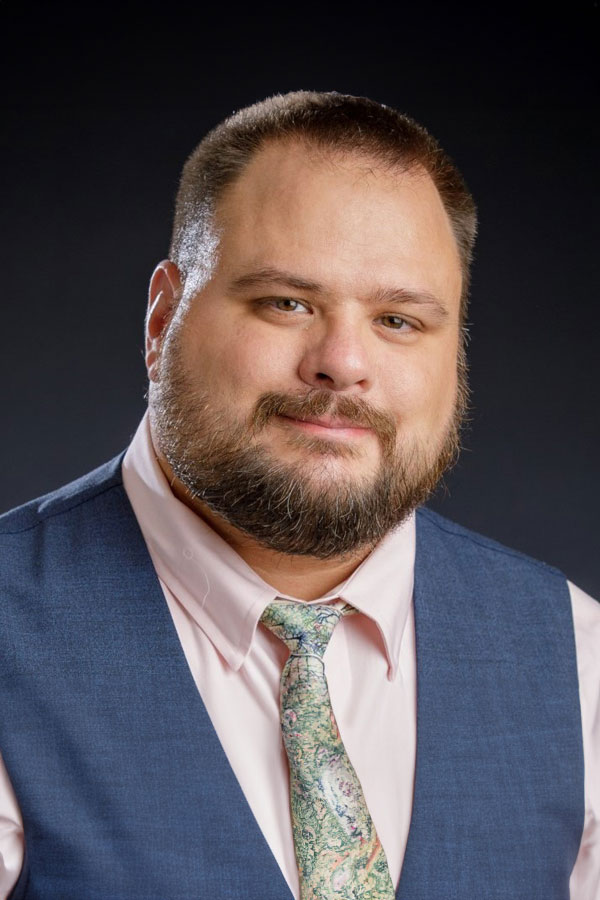
Jason DeFreitas, Ph.D., joined Falk College in the Department of Exercise Science as a professor and department chair in 2024. He earned his Ph.D. and master’s degree from the University of Oklahoma, where he later became a faculty member, spending 11 years teaching classes primarily focused on neuroanatomy and neuromuscular physiology.
His research focuses on how the brain controls movement and how aging and training change that control system. While at Oklahoma State, he won several university-wide awards for his research.
DeFreitas was among the second cohort of the Hevolution/AFAR New Investigator Awards in Aging Biology and Geroscience Research, a grant program that enables early career investigators with labs in the United States and Canada to advance research projects in basic biology of aging and geroscience projects that pave the way for healthspan-expanding therapeutics and treatments.
“Dr. DeFreitas has established himself as a highly productive scholar in neuromuscular physiology and exercise neuroscience,” says Falk College Dean Jeremy Jordan. “His publication record demonstrates both quantity and quality, with 91 peer-reviewed articles that have garnered over 2,500 citations. Of his total publications, he has maintained first or senior author position on 54 percent of papers, demonstrating his leadership role in research collaborations.”
Ignatius Ijere, Public Health
Promoted to Teaching Professor
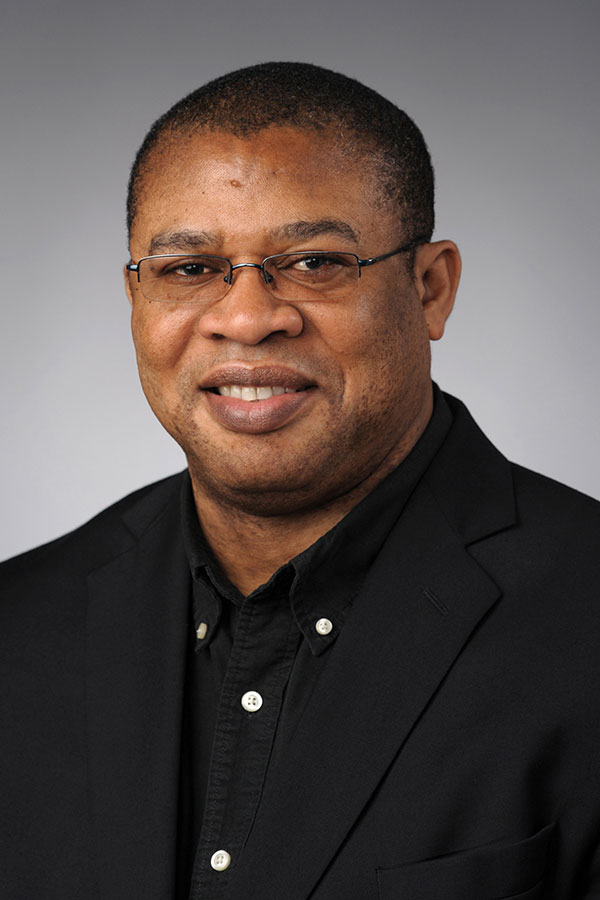
His expertise is in the areas of mental illness and addiction with professional experience as a mental health and addiction counselor with the Gateway Foundation and Thresholds Psychiatric Rehabilitation Centers. He previously served as an adjunct faculty member in the Department of Public Health at the College of DuPage, Waubonsee Community College, and St. Augustine Community College.
“Peer and student evaluations of Dr. Ijere’s teaching performance are consistently positive and describe a deeply respectful professor who cares about student well-being,” Department of Public Health Chair David Larsen says. “They also a describe an approach to teaching which is skillful, particularly when it comes to organizing complex and/or difficult material in ways that students can understand. Dr Ijere has taught an incredibly diverse menu of courses, and I laud his willingness to step in and teach courses on overload that are critical to department success.”
Jeremy Losak, Sport Analytics
Promoted to Associate Professor with Tenure
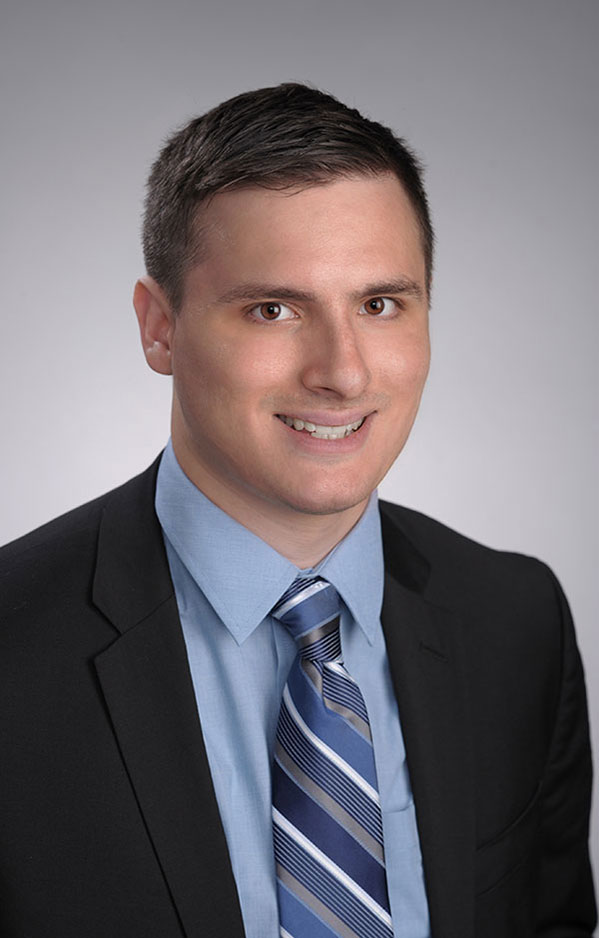
He is one of the faculty members who organizes and runs the Berlin Sports Analytics Academy, a program that brings high school students from across the country to Syracuse University over the summer to provide them with an immersive, hands-on college preview.
“Jeremy is an outstanding teacher and mentor, known for his dedication to student success both inside and outside the classroom,” says Sport Management Professor Rodney Paul, Ph.D., director of the Sport Analytics program. “His engaging teaching style and accessibility have made a lasting impact on the Sport Analytics program.
“Jeremy’s research spans sport economics, sports betting, and fantasy sports, with work published in leading journals such as the Journal of Sport Economics and the International Journal of Sport Finance,” Paul adds. “This is a well-earned recognition of his contributions across teaching, mentoring, and scholarship. Congratulations, Jeremy!”
Miriam Mutambudzi, Public Health
Promoted to Associate Professor with Tenure
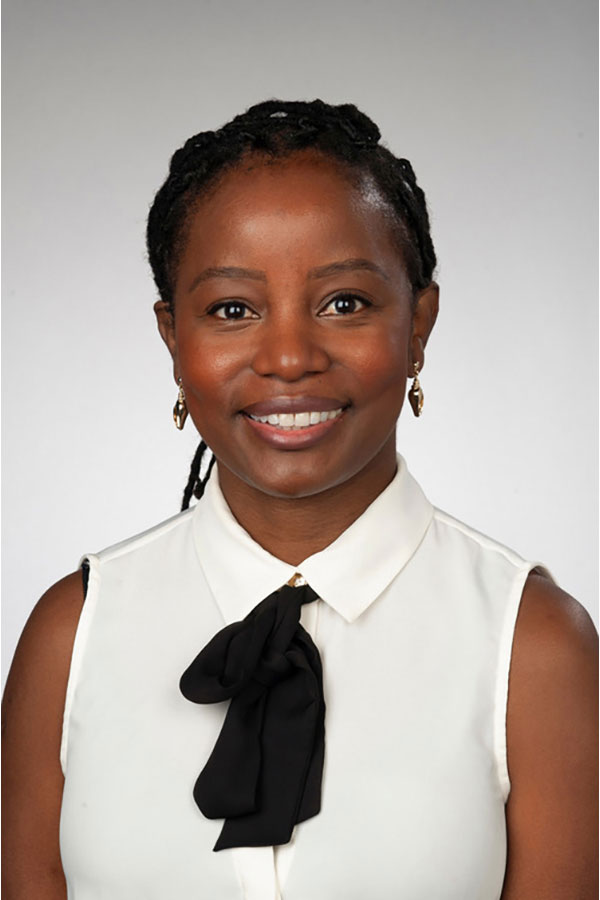
Prior to joining Syracuse University, Mutambudzi served as a research associate in the MRC/CSO Social and Public Health Sciences Unit at the University of Glasgow in Scotland, and a guest epidemiology professor in the Department of Epidemiology and Social Medicine at the University of Antwerp in Belgium. She has published extensively in peer-reviewed journals, including the European Journal of Ageing, Journal of Gerontology: Medical Science, and the Journal of Occupational and Environmental Medicine.
“Dr. Mutambudzi has established herself as a leading scholar in life-course epidemiology, with expertise in examining how socially patterned exposures and cumulative biological burden influence disease risk and health outcomes in older adults,” says Falk College Dean Jeremy Jordan. “Her research portfolio demonstrates both impressive productivity and significant impact on the field.”
Lisa Olson-Gugerty, Public Health
Promoted to Teaching Professor
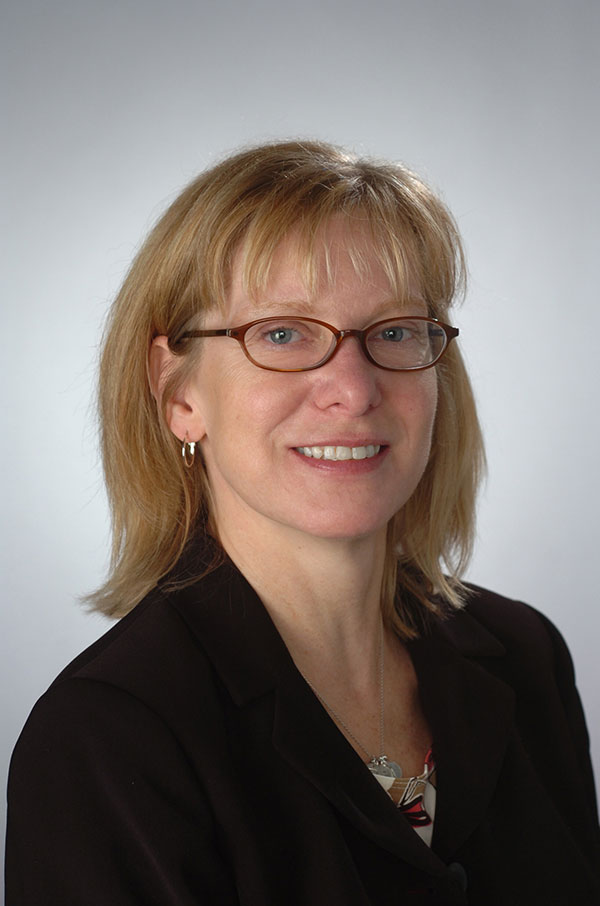
Olson-Gugerty is a nurse practitioner who maintains an outside practice as an emergency healthcare provider at a regional community healthcare center. She earned her Doctor of Health Science (D.HSc.) from Nova Southeastern University, and she also holds a Master of Public Health from the University of South Florida, a master’s degree in Nursing, Family Primary Care, from SUNY Upstate Medical University, and a bachelor’s degree in health science from SUNY Cortland.
Olson-Gugerty has served as a faculty thought leader by granting interviews to several top media outlets, including most recently ABC News, Yahoo Life, and Parade.
“Professor Olson-Gugerty has a background as both a practicing clinician and an academic,” says Department of Public Health Chair David Larsen. “This has informed her teaching philosophy, which emphasizes real word applications and the development of student critical thinking skills. She is dedicated to the student experience and works to create an inclusive and welcoming classroom environment.”
Stefanie Pilkay, Social Work
Promoted to Associate Professor with Tenure
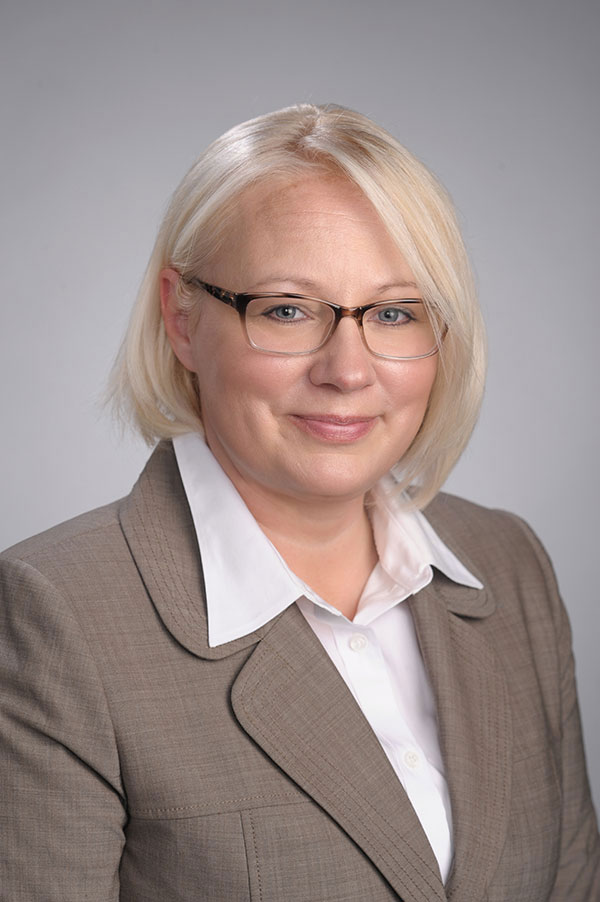
Pilkay’s scholarship addresses longstanding needs to better understand the relationships between adversity, epigenetic changes, and developmental outcomes including health and behavior to improve treatment and prevention outcomes for children and adolescents with health and behavioral issues exposed to poverty, stress, and environmental toxicants. Dr. Pilkay’s pioneering studies have been published in peer-reviewed journals, and her work has been supported by external grants. She has investigated particularly important questions of relevance to social work and genetics, especially in her pioneering work on trauma and its impact on gene expression.
“Dr. Pilkay is an exceptional addition to our faculty, and we are thrilled to welcome our newest colleague to our ranks!” says School of Social Work Chair Carrie Jefferson Smith.
Xiafei Wang, Social Work
Promoted to Associate Professor with Tenure
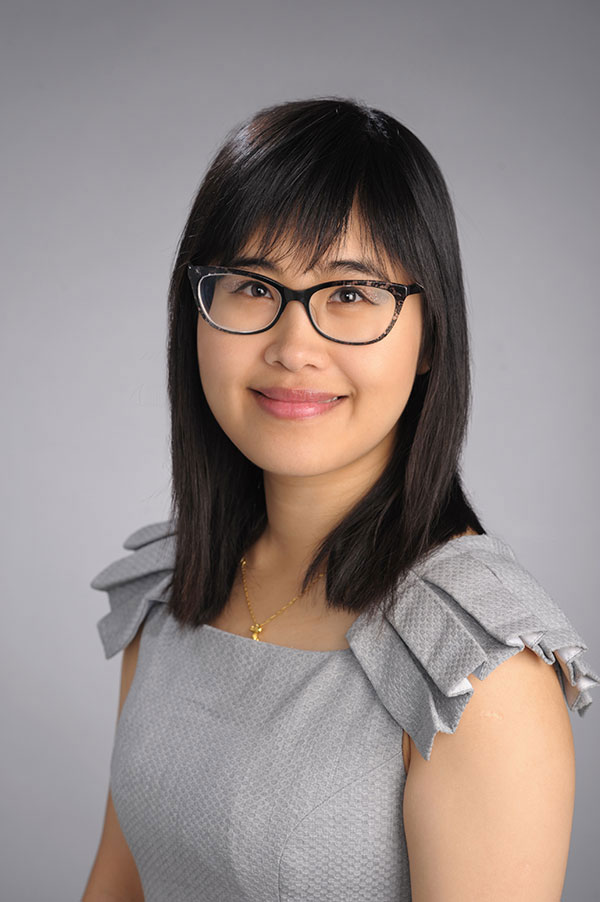
Wang’s scholarship addresses childhood trauma, intergenerational transmission of trauma, resilience, and the roles of race, gender, rural culture, and military experiences. Her work provides direct implications for designing programs and policies for diverse people experiencing trauma.
Awarded the Falk College Faculty of the Year Award for Excellence in Research in 2021, Wang has published extensively in high-impact journals and in chapters of peer-reviewed books. She has established a robust record of external funding from notable sources, including the Health Resources Services Administration and National Institute of Health.
“Dr. Wang has contributed substantially to the teaching and service environments of our program,” School of Social Work Chair Carrie Jefferson Smith says. “We are delighted to welcome Dr. Wang as a fully tenured colleague, and we anticipate a bright future as she continues to influence future directions in our understanding of trauma.”
As part of Syracuse University’s go-forward plan announced this past fall for the Falk College human dynamics programs, the Department of Public Health will join the Maxwell School of Citizenship and Public Affairs and the School of Social Work will be housed in the School of Education starting July 1, 2025.
2025 Falk College Convocation
The celebration included two members of Syracuse University’s Board of Trustees, Ken Pontarelli and Deborah Leone, who had family members graduating from Falk, and a surprise visit from Otto the Orange, who helped Falk College Dean Jeremy Jordan take a selfie in front of all the graduating students!
Watch the slideshow above for photos from Convocation, and visit the Syracuse University Commencement website to watch the full Falk Convocation ceremony.
Guest speaker Benita Fitzgerald Mosley, an Olympic gold medalist and visionary executive, delivered an inspiring speech during which she encouraged graduates to ask “Why not me” when they dream about the goals they have set for their careers and personal lives. Here’s a video and story to learn more about Fitzgerald Mosley.
Dean Jordan reminded the graduates that they follow generations of Syracuse University alumni who refused to settle, pursued innovation, and conquered the challenges of their time. Now, it’s their turn.
“The worlds of sports, human performance, and applied and behavioral health are evolving rapidly,” Jordan said. “To become effective leaders, you must evolve with them—and I have every confidence you will.
“At Syracuse University and Falk College, we have strived to prepare you to meet these challenges head-on and become the change agents our world desperately needs,” he continued. “The education you’ve received here has equipped you with the tools to make meaningful contributions in your chosen fields. Your unique perspectives, innovative thinking, and commitment to excellence will undoubtedly lead to breakthroughs that improve lives and communities.”
Class of 2025 Marriage and Family Therapy Awards
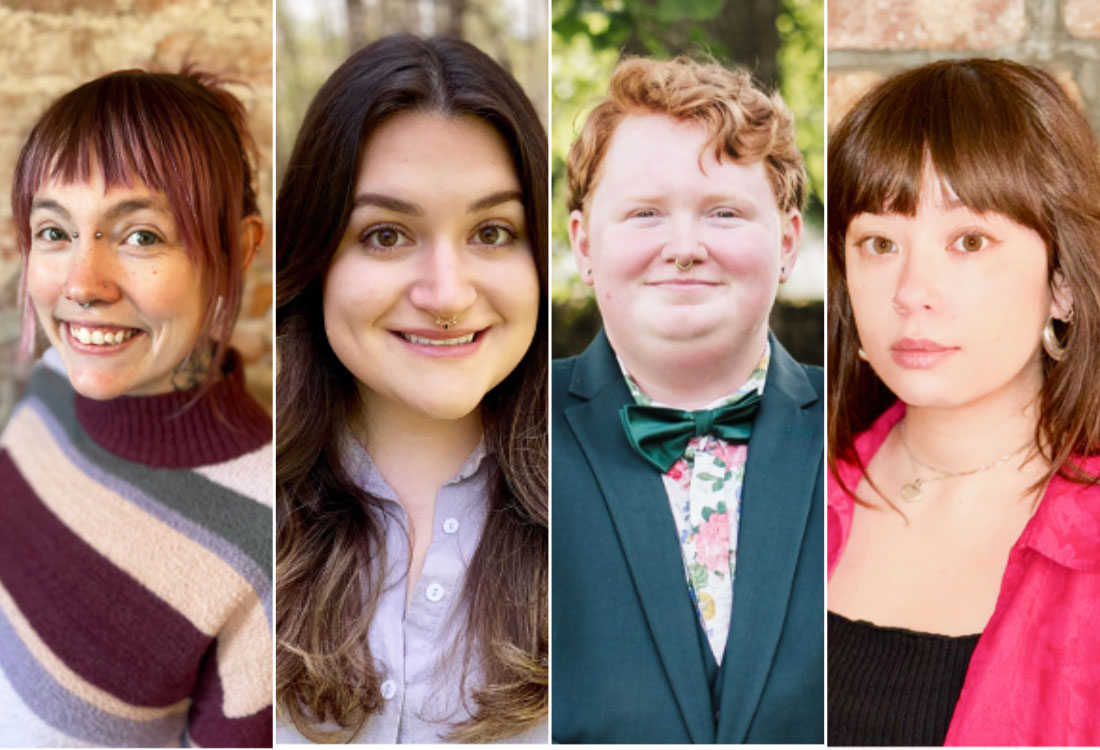
The Department of Marriage and Family Therapy (MFT) in the Falk College of Sport and Human Dynamics recently honored the following graduate students with 2025 department awards at its annual awards celebration:
Social Justice Award
Recipient: Emet Oden
Emet is a graduating residential student who currently has a 4.0 GPA. He has been a part of the MFT Trans Team during his entire time in the program and served as the group’s president this past year. He recently volunteered in a mental health support role at a local gathering for the trans community in the Syracuse area. He has partnered with mental health providers in the Syracuse area to facilitate workshops focused on providing gender affirming care and trans inclusive mental health care. Emet has worked rigorously to provide affirming, dignified care for this marginalized group, and use his knowledge, power, and skill set to dismantle barriers to affirming, dignified care wherever he can.
Class Marshal
Recipient: Sophia Widdekind
Sophia is a graduating residential student who currently has a 4.0 GPA. She has demonstrated commitment to the MFT Department and community service in many ways. in her first semester she co-facilitated a talk for her peers and the department on anti-fat bias, which was not associated with a class assignment or Capstone project. She served as vice president of the MFT Trans Team, and she worked at the clinic front desk for four semesters, picking up extra shifts to ensure the phone was answered and clients were greeted during the three months there was a vacancy in the administrative position. She had a full caseload during her time in the clinic, including a co-therapy case with the clinic director, even as her hours were on track to be above and beyond the required 500. Her passion and dedication to community service, our MFT department, and the MFT field as a whole is exemplary.
Torres and Wilczewski Scholarship Award
Recipient: Amanda Di Grazia
Amanda is a first-year residential student who currently has a 4.0 GPA. She has demonstrated her passion and commitment to the MFT Department and MFT profession in many ways. She serves as the residential MA student representative for the department and has collaborated with the online MA student representative to build multiple avenues for communication, including creating a newsletter. Amanda has been a fantastic ambassador for the MFT program, attending admissions sessions for prospective students and being available to answer questions from applicants. She has taken great initiative to create information sessions and workshops for residential MA students. Amanda is a member of the MFT Trans Team and works to use her voice to advance the MFT profession.
Eleanor Macklin Scholarship Award
Recipient: Kiana Eng
Kiana is an online MA MFT student who is scheduled to graduate in spring 2026. Kiana shows promise as a scholar and clinician. She currently has a 4.0 GPA and serves as the online MA student representative for the MFT department. In that role, Kiana has volunteered her time to attend information sessions with prospective MFT students and has done a fantastic job highlighting the unique qualities of our online program. Kiana has also collaborated with other student representatives to increase communication among cohorts and establish an MFT newsletter. Her passion and dedication to her studies, to the program, and the field of MFT are remarkable.
Class of 2025 Falk College Scholars
Seven members of the Class of 2025 have been named Falk College Scholars–the highest academic award conferred by the Falk College of Sport and Human Dynamics on graduating seniors. Falk Scholars represent undergraduate students who display academic excellence, exceptional campus and community engagement, independent research and creative work, innovation in their disciplinary field, and personal integrity.
We asked the Class of 2025 Falk Scholars to describe their most impactful experiences at Syracuse University. Here’s what they wrote:
Grace Elizabeth Brashears (Human Development and Family Science)
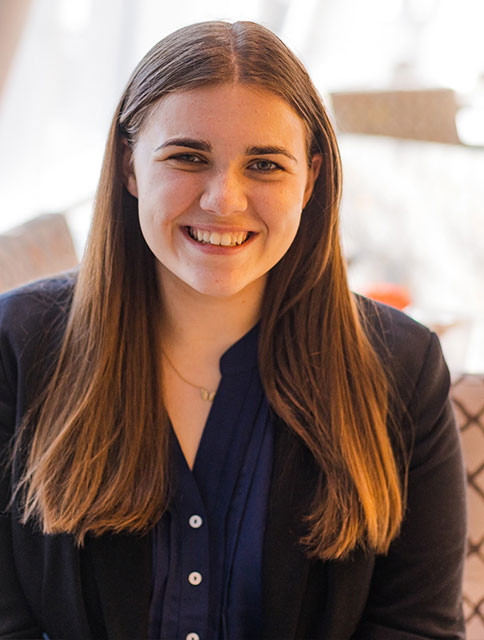
Throughout my time at Syracuse University and Falk College, I have been honored to take part in various service initiatives that help the very community I have called home for the last four years. The most influential of these was my work with Upstate Golisano Children’s Hospital as a Child Life Practicum student, and as president of OttoTHON at Syracuse University. In my time with OttoTHON, I have led a generation of students to raise over $400,000 for Upstate Golisano Children’s Hospital.Alongside my work with Golisano Children’s Hospital, I have been given the opportunity to impact my community through assisting in research that is developing more accessible research ethics training for individuals with intellectual and developmental disabilities. Additionally, I have worked with various organizations in Syracuse, including the Boys and Girls Club, RISE (Refugee and Immigrants Self-Empowerment program), beneath the surFACE at Upstate Cancer Center, Syracuse Red Cross, the Children’s Advocacy Center, Upstate Community Hospital, and more.
These opportunities, heavily supported by Syracuse University and Falk College, have successfully set me up for a lifetime of service and philanthropy, and a fulfillment of my purpose to use my education to benefit the lives of those around me. I will never forget my time at Syracuse and a part of me will always be here on the hill. Go Orange!
Xuezhu “Stephanie” Hua (Nutrition Science)
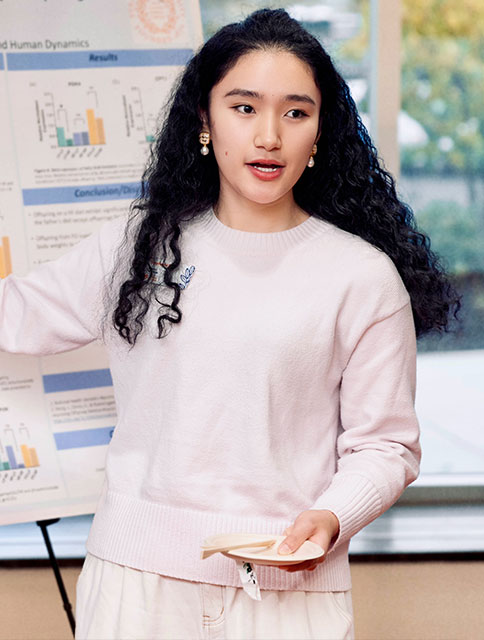
When I was a sophomore, I led a dorm room recipe project through the Office of Student Services in Falk College. The goal was to introduce healthy, easy-to-make snacks that people could take with them to class or work. I created three recipes—chocolate bark, microwave cake, and banana wraps—and prepared 100 samples. I presented these to students and faculty from Falk College, explaining the nutritional benefits and preparation methods. I found this experience incredibly rewarding and empowering as it allowed me to apply my knowledge to help others improve their health and well-being. It instilled in me a lasting commitment to use my expertise to make a meaningful impact in the community.
Another inspiring experience was my honors thesis done in Dr. Latha Ramalingam’s lab, where I investigated the effects of fish oil in reducing paternal obesity and improving muscle health in male offspring. This project was both inspiring and transformative—it was where I discovered my passion for biomedical science. Combined with foundational coursework such as Dr. Margaret Voss’s biochemistry class, anatomy, and physiology, I developed a deep passion and appreciation for the complexity and intricacy of human metabolic physiology—and the many avenues through which we can address disease. These experiences shaped my path toward studying metabolic diseases and cellular metabolism, fields where my passion aligns with pressing global health challenges.
Benjamin Lanza Jennings (Sport Analytics)
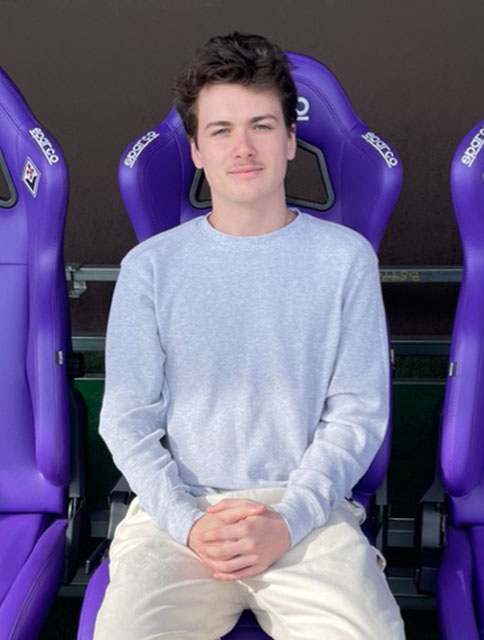
Being named a Falk Scholar is an incredible honor and a reflection of the meaningful experiences I have had at Syracuse University. I have always been passionate about working in sports, and Falk College gave me the tools, support, and guidance to pursue a career in sport analytics.One of the most memorable experiences was traveling to Italy as part of the first Sport Data in Italian Football course. I learned a ton about analytics in a global context, was immersed in the Italian culture, and had the opportunity to deliver a data-driven presentation to the Bologna FC professional soccer team.
Working with Syracuse’s football and women’s soccer teams gave valuable hands-on experience in sports I am truly passionate about. Winning the 2024 Syracuse University Basketball Analytics competition helped me grow both technically and creatively. All of these opportunities provided me with the skills and confidence to succeed with professional organizations.
I am incredibly grateful to the professors, advisors, and staff at Falk College who encouraged me, opened doors, and helped me prepare for what’s next. Syracuse University and the Sport Analytics program made it possible to turn my passion into a path forward in the sports industry.
Jarrett Markman (Sport Analytics)
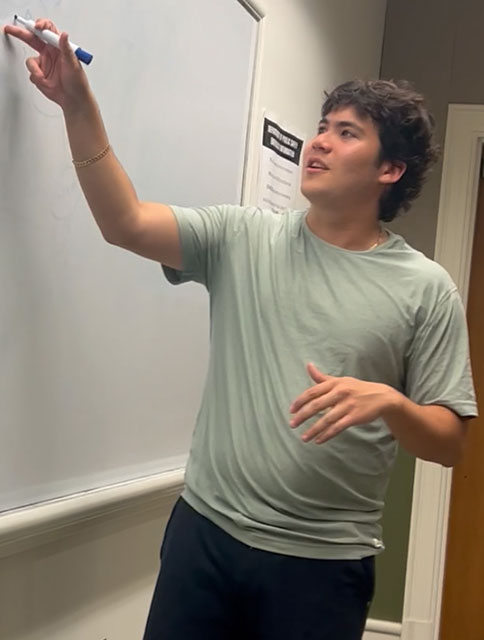
The most impactful experience I’ve had at Syracuse University was the opportunity to develop a passion for learning. In the Sport Analytics program, I was able for the first time to blend my passion for academics (math-based work) with one of my favorite hobbies, sports. The program provides many learning opportunities, such as the many academic clubs presented to students in the major.Given my background playing tennis at a high-level, I was interested in creating my own club and combining my abilities as a tennis player and sport analyst. Due to the lack of popularity in tennis across the country compared to other sports, we built a close-knit group of members who discussed a variety of the technical and physical aspects of tennis that come from the perspective of playing, watching, and analyzing.
In our club, we utilized the knowledge gained from our coursework and applied that to various aspects of tennis. The Tennis Analytics Club has heightened my passion for learning, leveraging the power of data science (notably statistics), machine learning, and programming to identify the various ways to formulate powerful insights.
Anna Meara Pierce (Sport Analytics)
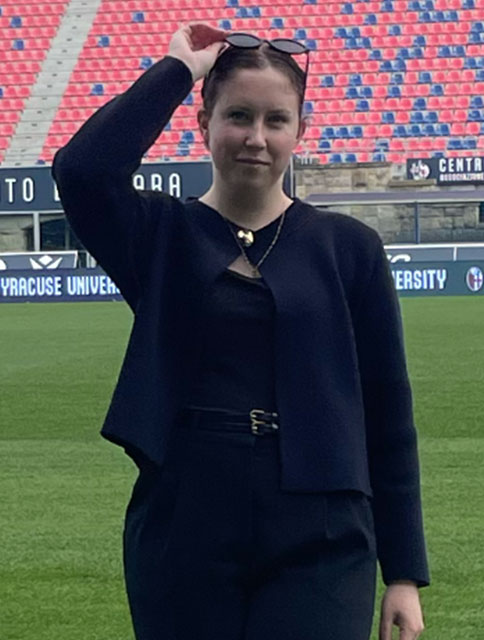
A lot of the impactful experiences I’ve had at Falk and Syracuse University have been on a smaller level, including the support of my professors and advisors. However, I’ve been lucky enough to go on several department-sponsored trips to conferences or other sport-related events.One such event was the 2024 NFL Draft in Detroit. The Sport Analytics and Sport Management teams used a previous connection with one of the community tourism-related groups organizing the draft to take six of us (three analytics students and three management students) to work the draft in areas from combine-related fan activations to manning the information desk. While I already knew that I wanted to work in fan engagement within the sport, the draft opened my eyes to the potential reach and success of a tent-pole event such as the draft, as well as to the world of fan engagement and events within football.
Ultimately, this trip showed me the possibilities for impact on the business side of the NFL and its teams, driving me to take a position with the Green Bay Packers in their business analytics department for post-graduation.
Nicole Yanza Shanguhyia (Public Health)
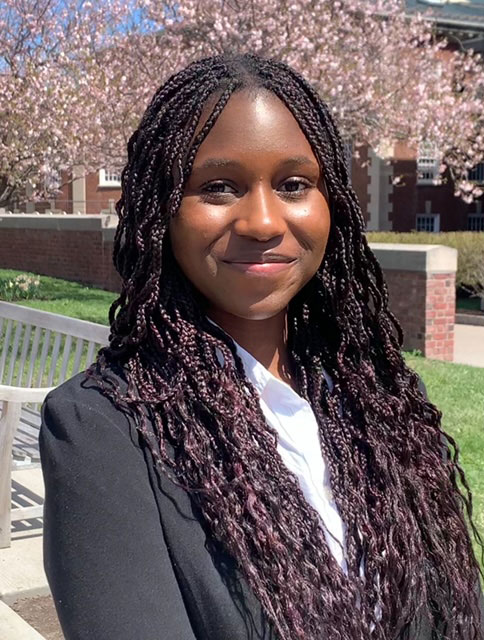
During my time at Syracuse University I’ve had the opportunity to meet a lot of wonderful people, but none quite like the members of the Student Association of Public Health Association. The designated student organization for the Department of Public Health, better known as SAPHE, was first introduced to me in my sophomore year.When Professor Lisa Olson-Gugerty announced she was reviving the student-run club, I wasu admittedly hesitant to join. At this point, I had yet to grow close to anyone in my major and was unsure of how welcoming other students would be. To my surprise, SAPHE evolved into the highlight of my time in public health. Through my involvement in the club, I deepened my understanding of health awareness by planning semester-long initiatives and on- and off-campus activities.
But more importantly, I formed lasting connections with so many incredible people in my major. Because of SAPHE, I could look around my classes and find comfort in familiar faces. As I’m preparing to move forward and reflect on my experiences at Syracuse University, I can say with confidence that the members of SAPHE represent the best that my department has to offer.
Jonah Aaron Soos (Sport Analytics)
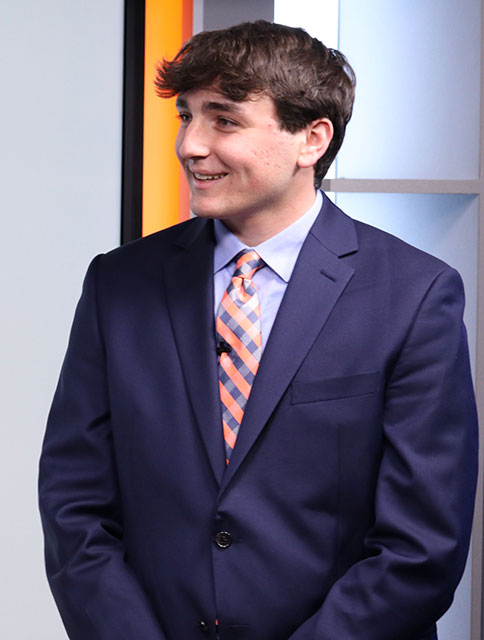
The moment that stands out during my journey at Falk College was the privilege of experiencing different parts of the sports industry across the country. Through research and case competitions, I have had the opportunity to visit multiple cities to network with students and professionals from around the country, experience new cultures, build bonds with fellow students, and have a chance to represent Syracuse and compete against top analysts nationwide.My most impactful trip was attending the Society for American Baseball Research (SABR) Analytics Conference in Phoenix, Arizona, each of the past two years with 20 other Syracuse students to compete in the Diamond Dollars competition and present some of my own research on Major League Baseball umpires and the challenge system.
Working closely with my peers has created a sense of community within Falk College, for which I’ll always be grateful, and has helped me make lifelong friends and many incredible memories. I’m excited to return to Phoenix as an alum and watch future generations of Falk students compete, and I’m also excited to see how they can one-up what we accomplished!
Faculty of the Year Awards

Mary Kiernan, Colleen Cameron, and Fei Pei were honored with 2025 Falk College of Sport and Human Dynamics Faculty of the Year awards for excellence in teaching, service, and research, respectively. The honorees were nominated by their peers for outstanding teaching, scholarship, and internal and professional service contributions and announced by the Falk College Faculty Council in late April.
Here’s a look at the 2025 honorees with comments from their award presenters:
Chef Mary Kiernan, M.B.A.
Undergraduate Director, Food Studies, and Teaching Professor, Nutrition and Food Studies
Evan Weissman Memorial Faculty of the Year Award for Teaching Excellence
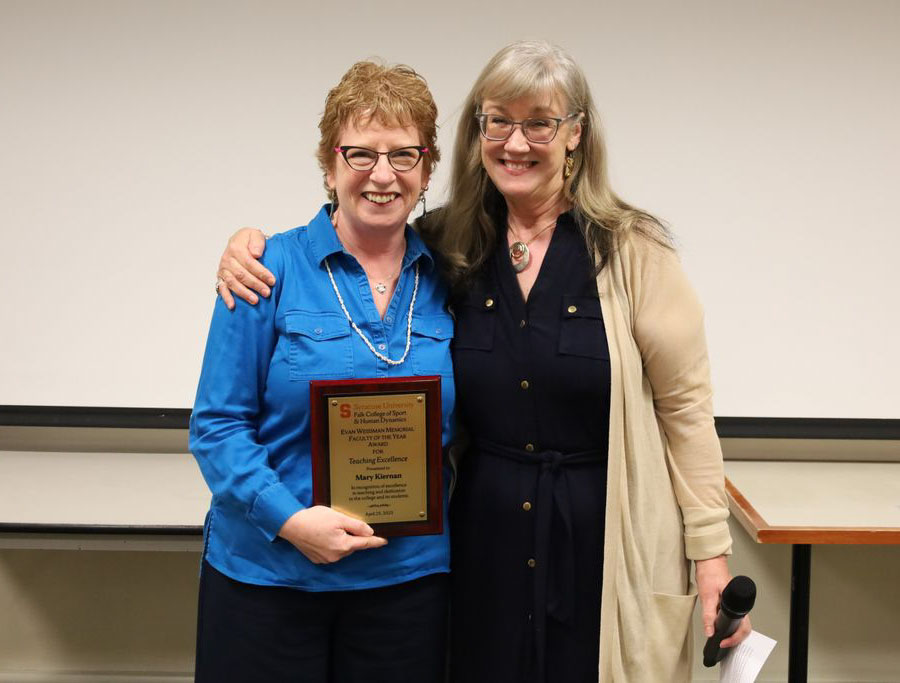
“It’s hard to imagine a more fitting honoree for an award that bears Evan’s name. In so many ways, Mary embodies Evan’s philosophy—his passion for student mentorship, commitment to teaching, dedication to social consciousness, and, of course, his dedication to food studies.
“Mary is a Teaching Professor in the Department of Nutrition and Food Studies, where she is known for transforming her classrooms into dynamic, immersive spaces. Her courses—spanning food safety, systems management, and urban food systems—equip students with essential technical skills while also challenging them to explore the social, cultural, and ethical dimensions of food.
“What truly distinguishes Mary in the teaching kitchen is her ability to bridge theory and practice. Whether she’s redesigning core curricula, mentoring independent projects, or advising students, she brings clarity, creativity, and compassion to everything she does.
“Her leadership as Undergraduate Director for the Food Studies program, her engagement with professional networks, and her commitment to inclusive, culturally rich programming and hands-on culinary experiences enrich our campus and our community. Mary’s work exemplifies excellence in education—and the spirit of this award.”
Learn more about Evan Weissman, Ph.D., Associate Professor in Food Studies and Nutrition who passed away in 2020.
Colleen Cameron, CCLS, M.Ed.
Undergraduate Director and Professor of Practice, Human Development and Family Science
Faculty of the Year Award for Excellence in Service
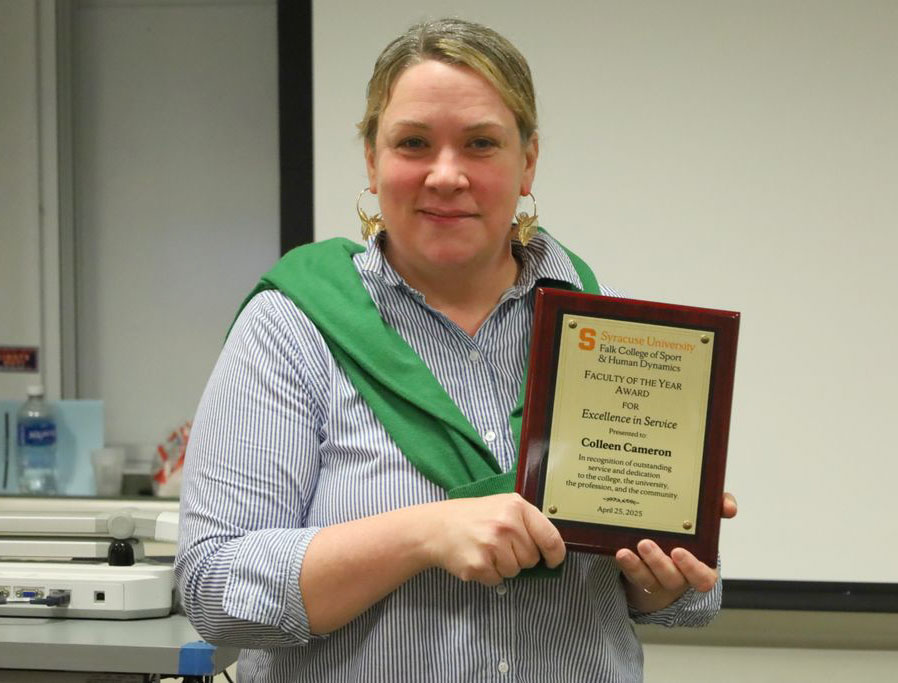
From presenter Tracey Reichert Schimpff, M.A., Ph.D., LMFT, Graduate Director and
Associate Teaching Professor, Department of Marriage and Family Therapy:
“Colleen is a Professor of Practice in the Department of Human Development and Family Science (HDFS), and a certified Child Life Specialist and End of Life Doula. She has been with Syracuse University since 2009, serving students, her Department, and the field.
“Her nomination letter states, ‘Colleen has always exemplified the very best of student-focused work and a commitment to our students and program. She is uniquely and wholly committed to the success of our students and has always gone above and beyond. Overall, Professor Cameron’s service work has been exceptional both in its breadth and in its impact.’
“In the nomination materials, it was noted that Colleen’s signature service is heading the Child Life program. It is an endorsed program that leads graduates to become certified Child Life Specialists. This requires knowledge of requirements, oversight of curriculum, and guiding students through the process that leads to certification. Colleen single-handedly ensures that this program continues.
“This past year, Colleen also served as Undergraduate Director in HDFS, managing curriculum, working with admissions and marketing, and engaging directly with students (and sometimes families). In a year of transition, I imagine this has been quite an undertaking!
“In HDFS, Colleen also serves as faculty advisor and chair of the Student Engagement Committee, which was created to increase student voice and connection. From what I understand, this committee has grown, and students have benefited greatly from Colleen’s dedication. Colleen served as mentor for Renee Crown honors students and led the HDFS New York City Career Immersion Trip, a trip that is highly regarded by HDFS students.
“In addition to the significant roles she plays in HDFS, Colleen also served at college and university levels. In 2024, Colleen was selected to serve on the Human Development Task Force. She was very committed to the process, and worked diligently to gather information and advocate for her department.
“Collen serves on the Syracuse University Senate and its Research and Creative Scholarship Committee. Collen is also engaged in service to her profession, acting as Director of the Conference Committee and Co-Chair of the Clinical Experience Task Force for the Child Life Academic Society. Finally, Colleen has even found time to volunteer at her school district and community council.
“It seems obvious that Colleen has made significant contributions to students, her department, and the larger University. She serves with commitment and leads with passion and professionalism. I am proud to call Colleen my colleague.”
Fei Pei, Ph.D.
Assistant Professor, School of Social Work
Faculty of the Year Award for Excellence in Research

“Dr. Pei, who is in her fourth year in the School of Social Work, is a dedicated and productive researcher. Her advanced quantitative work demonstrates a clear research focus and trajectory and contributes to a crucial discourse in our field on the effects of neighborhood conditions, including violence, on children’s development.
“Fei has published 37 peer-reviewed articles in top-ranking interdisciplinary journals, including “Child Abuse and Neglect,” “Development and Psychopathology,” and “Children and Youth Services Review.” In 2024, she published four articles–three of which are first-authored–and submitted four additional manuscripts that are currently under review.
“In 2024, Fei also submitted four external grant applications, including three NIH (National Institutes of Health) applications for which she is principal investigator. Three of these applications are still under review and could use our collective good vibes!”
Gold Standard
Olympic gold medalist and visionary executive Benita Fitzgerald Mosley says it has been her lifelong mission to help people win gold medals in business–and in life.
“My gold medal is the gift that keeps on giving,” Fitzgerald Mosley says. “I am forever grateful, so I want to pay that gift forward.”
To get there, Fitzgerald Mosley highlights five “Olympic rings” to help people achieve their goals: Have a good start, set high goals, run your own race, power through hurdles, and have a strong finish.
“You have to ask yourself, why not me?’’ Fitzgerald Mosley says. “Why can’t I be the best in the world at what I do?”
From becoming the first African-American woman to win the 100-meter hurdles at the 1984 Olympics to her current role as chief executive officer of Multiplying Good, Fitzgerald Mosley has persistently broken barriers and advanced the idea that sport has the power to inspire and change the world.
Her enormous impact as a results-oriented leader in the Olympic, non-profit, and corporate worlds is why Falk College Dean Jeremy Jordan asked Fitzgerald Mosley to be the keynote speaker at the Falk Convocation at 12:30 p.m. May 10 in the Lally Athletic Complex.
“Benita’s ‘why not me?’ message encourages us to challenge societal expectations and embrace our potential, while Multiplying Good is helping people bring about positive change and inspiring them to do more,” Jordan says. “The life lessons and insights that Benita will share May 10 will provide valuable inspiration to our graduates and all of us.”
Using Fitzgerald Mosley’s five Olympic rings, here is her remarkable story:

Have A Good Start
Fitzgerald Mosley often uses a quote from former American politician and motivational speaker Les Brown, who said, “You don’t have to be great to get started, but you have to get started to be great.”
Fitzgerald Mosley’s parents, Fannie and Rodger Fitzgerald, were both educators and they encouraged Fitzgerald Mosley to get started in as many extracurricular activities as possible in their hometown of Dale City, Virginia. By participating in gymnastics, softball, majorettes, and track, and learning the piano, violin, flute and piccolo, Fitzgerald Mosley discovered what she loved and was good at and where to focus her attention.
“They were very supportive and stood by me in every aspect of my life,” Fitzgerald Mosley says of her parents. “They celebrated my every achievement, large and small, and I loved to make them proud.”
While she became the first chair flute for the Gar-Field High School symphonic band, Fitzgerald Mosley says she wasn’t very good at softball and grew too tall to be a gymnast. But middle school physical education teacher, family friend, and gymnastics coach Gwen Washington was also the coach of the track team and when it became obvious that Fitzgerald Mosley had outgrown gymnastics, Washington suggested she join the track team because she had seen Fitzgerald Mosley outrun the boys in gym classes.
“So I went out for the track team and started winning races from the very beginning,” Fitzgerald Mosley says. “It wasn’t until I was 12 years old and in the seventh grade that I even discovered my athletic prowess.”
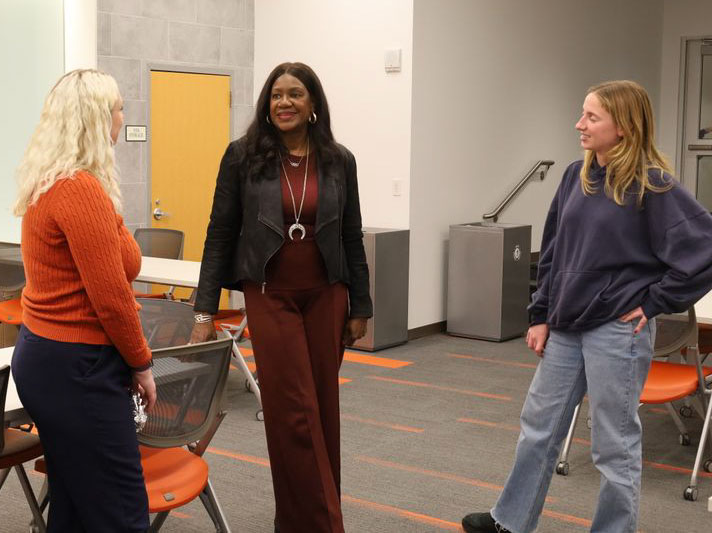
Set High Goals
As a high school freshman sprinter and hurdler, Fitzgerald Mosley helped the track team win its fourth consecutive Virginia state championship. She was a teammate of senior Paula Girven, who represented the United States in the high jump in the 1976 Olympics and qualified for the team in 1980. Their high school track coach, Anne Locket, also led the girl’s gymnastics and basketball teams to state championships.
“Coach Locket said to me, ‘You know, you can be an Olympian someday just like Paula,’ and I looked at her like she was from Mars,” Fitzgerald Mosley says, smiling. “But having a coach believe in you and say that to a youngster at 14 years old, it set me up for great things to come.”
By 1980, Fitzgerald Mosley was 18 and already a track star–and an industrial engineering major–at the University of Tennessee, where she would become a 14-time All-American and four-time NCAA hurdles champion. Like Girven, she made the 1980 Olympic team but didn’t participate because the United States led a boycott of the 1980 Summer Games in Moscow to protest the Soviet invasion of Afghanistan.
Fortunately for Fitzgerald Mosley, she was still in college and had the benefit of having access to coaching, training equipment, and the highest level of competition in college. This was a time when Olympic athletes were strictly amateurs who couldn’t make money off their athletic achievements, and many athletes who qualified for the 1980 Games, like Girven, weren’t able to return for the 1984 Games.
“At that point, people didn’t have these long careers spanning three- and four- and five-Olympic Games that started with my generation because they started to allow us to make money while we were competing,” Fitzgerald Mosley says. “The two other hurdlers that were on the Olympic team with me in 1980 didn’t make it again in 1984, so that was their one and only chance to be an Olympian.”
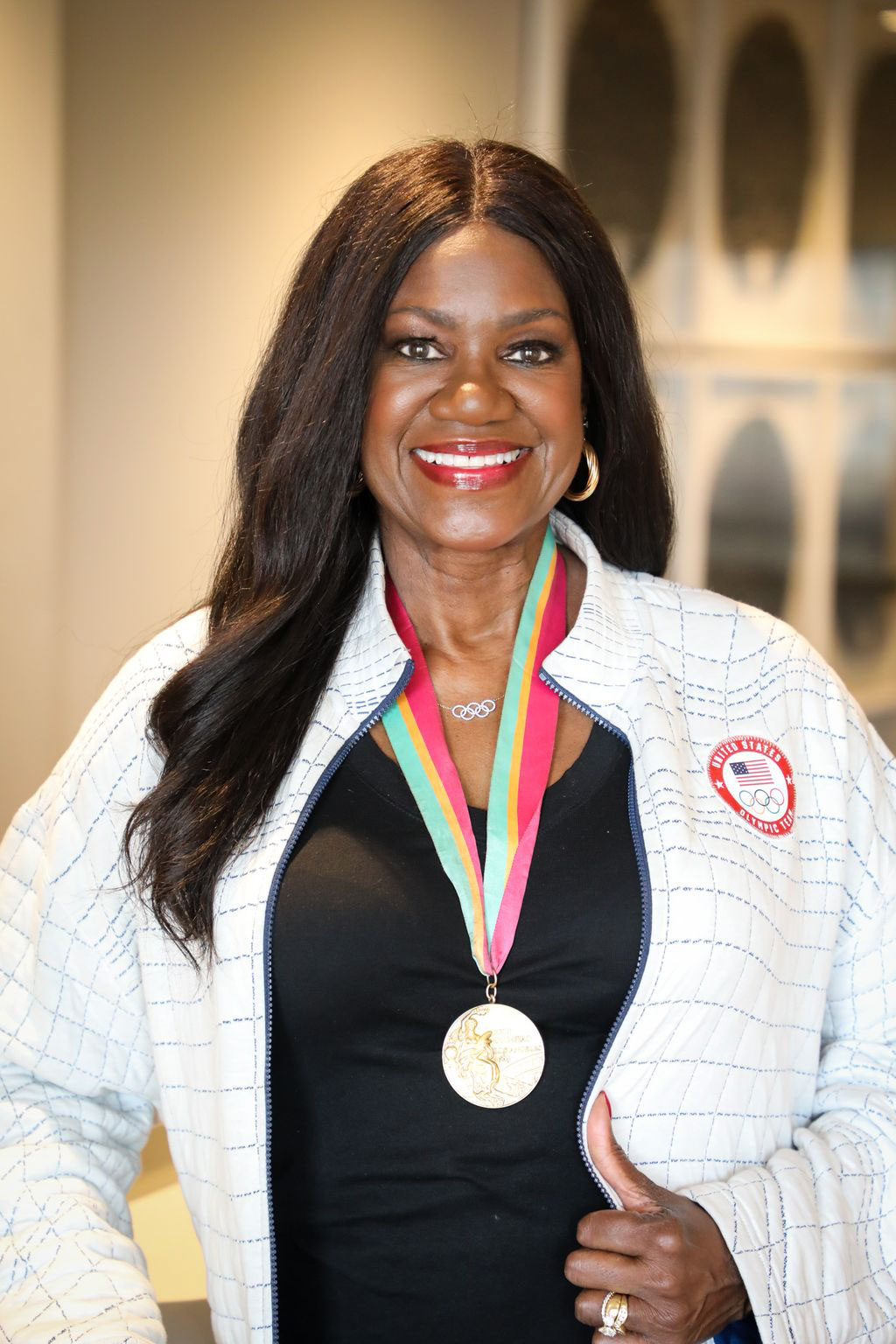
Run Your Own Race
For Fitzgerald Mosley, the last decade of her professional career has been similar to her Olympic performance where she kicked it into an even higher gear to beat the favorite, Great Britain’s Shirley Strong, and win the gold medal.
In 2016, she was named CEO of Laureus, a nonprofit organization that believes sport has the power to change the world. After stints as a senior advisor for Airbnb and president of the FundPlay Foundation, Fitzgerald Mosley was hired for her current position as CEO of Multiplying Good in July 2023. The mission of Multiplying Good is to help people reach their full potential and discover their power to deliver impact and bring about meaningful change.
“I really believe in– and care about–coming to work every day leading an organization that’s ultimately impacting people’s lives in a positive way,” she says. “That’s the utmost kind of thrill for me.”
Over time, Fitzgerald Mosley says all her experiences led to this moment of clarity where she realized she can help people and organizations win gold medals in life and business. That’s her daily focus, whether she’s leading Multiplying Good, serving on the Board of Directors for the Special Olympics, or speaking to a stellar group of graduates from Falk College.
“Where I can show up in the world is to truly help young people derive the benefits of sport participation in communities that otherwise wouldn’t have those opportunities, by funding those organizations, by helping them build their capacity so they could serve more young people, not just in the United States, but around the world,” Fitzgerald Mosley says.

Power Through Hurdles
Like one of Fitzgerald Mosley’s races, the line from Olympic gold medalist to influential executive may have been a relatively straight one, but not without its hurdles.
Fitzgerald Mosley’s bid for the 1988 Olympics was slowed by an ankle injury that required surgery in 1987. Still, she qualified for the Olympic trials and was leading in the finals before she tripped over the last hurdle and missed making the team by 1/100th of a second.
“The hardest team to make in the world is a U.S. team, particularly in swimming and track and field, where you pick yourself, no one picks you,” Fitzgerald Mosley says. “You have strep throat, you hit a hurdle, you fall in a race, you’re injured, sorry, you don’t get to go.”
Fitzgerald Mosley wasn’t able to capitalize financially on her Olympic success the way athletes can today, so she didn’t have a lot of money when she retired from running. But she did have her industrial engineering degree from Tennessee and found a job with a defense contractor, where she was working on projects such as conducting time and motion studies for the M1 Abrams tank or creating software design documents for the Seawolf submarine.
“Don’t get me wrong, these are all important things. And of course, I have the utmost admiration for the people who serve in our military,” Fitzgerald Mosley says. “But I just wasn’t the person to do that kind of work, and I think it was because it wasn’t aligned with my passion.”
After working as president and CEO of Women in Cable Telecommunications (now called The WICT Network), an organization dedicated to empowering women leaders, Fitzgerald Mosley started to hit her professional stride with jobs as Chief of Sport Performance for USA Track and Field and COO of the U.S. Olympic and Paralympic Committee.
“My career in both sport management and nonprofits was born at that point in time, when I realized I didn’t have to train three to six hours a day to participate in sport,” she says. “That was the big light-bulb moment for me to get that opportunity to work first for Special Olympics International and then with the Olympic and Paralympic Committee and have my heartstrings pulled by the mission of the organization.”
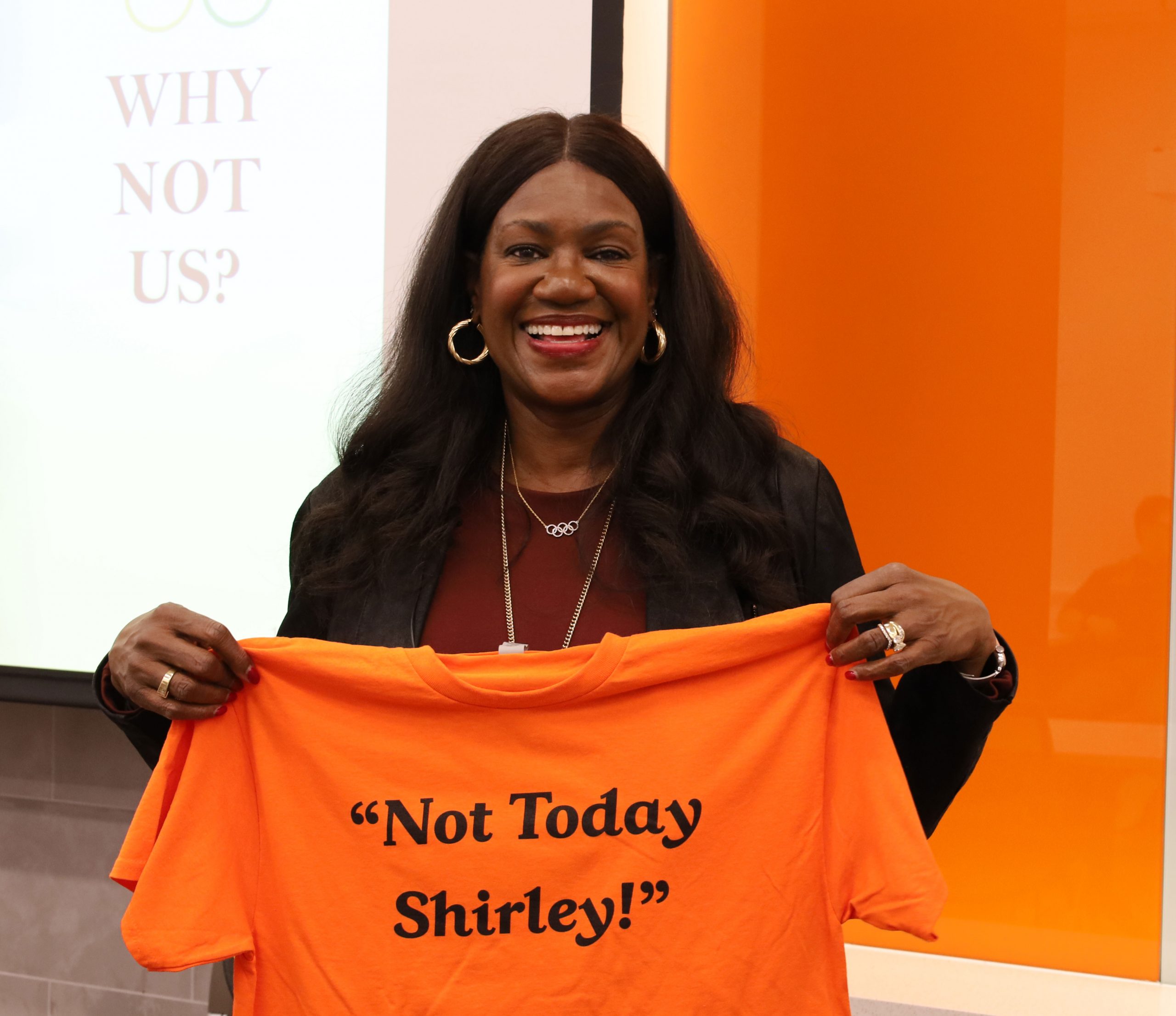
Have a ‘Strong’ Finish (a.k.a. Not Today Shirley)
Fitzgerald Mosley took full advantage of her second chance at the 1984 Olympic Games in Los Angeles, where she needed to beat Strong. At the 1983 World Championships, Strong had defeated Fitzgerald Mosley, a fitness fanatic who noticed that Strong was smoking cigarettes following their race.
“She’s smoking and she just beat me? She will never beat me again,” Fitzgerald Mosley told herself. “The next year (at the Olympics), I saw her smoking a cigarette between the semifinals and finals, and that reminded me of my vow.
“In the finals when we were racing, I saw her out of the corner of my eye, and I said to myself, ‘Not today Shirley,’’’ she says.
Fitzgerald Mosley ran the race in 12.84 seconds, beating Strong by 4/100th of a second to become the second U.S. woman and the first African-American woman to win a gold medal in the 100-meter hurdles. The 1984 track and field events were held in the Los Angeles Coliseum, where Babe Didrikson became the first U.S. woman to win what was then the 80-meter hurdles in 1932.
“It was magical,” Fitzgerald Mosley says. “To be on your home soil and walk into a stadium with 90,000 people screaming ‘U-S-A’ and cheering for you once you win, there’s nothing better.”
Fitzgerald Mosley has been inducted into several halls of fame, but she says perhaps her greatest honor occurred when she was selected as one of eight U.S Olympians to carry the Olympic flag into the stadium during the opening ceremony of the Centennial Olympic Games in Atlanta. Legendary boxer Muhammad Ali capped the ceremony by lighting the Olympic cauldron.
“We had practiced the night before under the cloak of darkness because no one knew who the eight of us were going to be that were walking in,” Fitzgerald Mosley says. “And we didn’t know Muhammed Ali was going to be the one who lit the torch.
“It had a mission impossible-type of feel to it, and that was pretty cool to be in on the inside of that little secret as well,” she adds.
Fitzgerald Mosley says she owes everything to her sport experiences, from winning the gold medal to her college education to meeting her husband, former Brown University football player Ron Mosley, with whom she has two grown children; a son, Isaiah, and a daughter, Maya, who runs track at the University of Maryland. She is most grateful to her parents, who encouraged her to get out there and keep trying until she found her passion.
“I would just say to young people in particular, don’t let your fear of failure get in your way of pursuing your dreams,” Fitzgerald Mosley says. “Because even if you fall somewhat short of the ultimate dream, you’re going to be so much further along toward that dream and that goal than you ever would have been if you didn’t start in the first place.”
Significant Impact
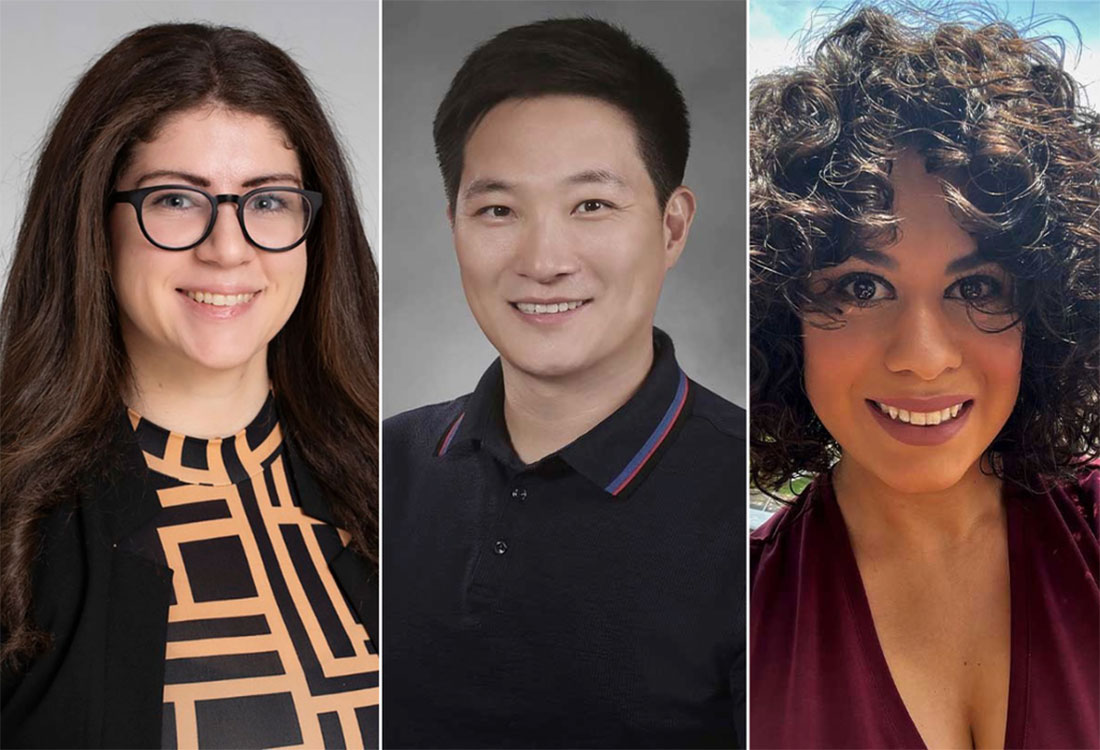
Syracuse University faculty members were honored with the Excellence in Graduate Education Faculty Recognition Award at a campus ceremony April 24. The award, given annually by the Graduate School, honors professors who have had a significant impact on graduate education through teaching, service and research or creative activities.
This year’s awardees, chosen by an interdisciplinary committee of graduate students, are the following:
- Nick Bowman, associate professor of communications, S.I. Newhouse School of Public Communications
- Catherine García, assistant professor of human development and family science, David B. Falk College of Sport and Human Dynamics
- Joon Young Kim, assistant professor of exercise science, Falk College
- Scott Landes, associate professor of sociology, Maxwell School of Citizenship and Public Affairs
- Claudia Miller, professor of mathematics, College of Arts and Sciences
- Angela Oliverio, assistant professor of biology, College of Arts and Sciences
- Natalie Russo, associate professor and associate chair of psychology, College of Arts and Sciences
- Yiyang Sun, mechanical and aerospace engineering, College of Engineering and Computer Science
- Eman Tadros, assistant professor of marriage and family therapy, Falk College
- Qiu Wang, professor of higher education, School of Education
“We know that talented faculty members are the cornerstone of a quality graduate education,” says Peter Vanable, dean of the Graduate School. “This awards program gives us an opportunity to hear directly from our students, as well as from faculty, staff and alumni, about which professors have had a significant positive influence on their studies. We are delighted to recognize these ten individuals for their dedication and contributions to the University.”
A Syracuse University News story by Wendy S. Loughlin originally published on April 25, 2025.
‘Resiliency and Strength’
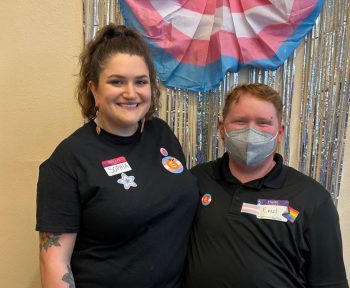
“Organized by master’s students in the Marriage and Family Therapy program, as well as Ph.D. candidates and supportive staff, the event is designed to celebrate the trans community and provide resources and a safe and affirmative space for socialization and connection,” says Marriage and Family Therapy master’s student Sophia Widdekind, vice president of the Trans Team.
More than 370 people attended the 2025 Trans Support Day April 5 at Peck Hall, just north of the Syracuse University campus. This year’s event was particularly impactful as the trans community faces unprecedented societal and legislative discrimination throughout the United States.
This year’s attendees had the opportunity to connect with more than 25 trans-affirming providers, including local businesses and organizations that support–and advocate for–the trans community. The event also included arts and crafts, makeup and hair tutorials, and free clothing made possible by an overwhelming amount of donations.
To learn more about Trans Support Day, we asked Trans Team President Emet Oden and Vice President Widdekind to share their thoughts on the event. Here’s what they wrote:
Emet Oden ’25, Marriage and Family Therapy master’s student
“Trans Support Day (TSD) is needed more and more every year, especially now with the rights of so many trans people being threatened and stripped away. TSD creates a space for the Central New York trans community to get connected with affirmative health, social, and beauty services, find clothing, and make connections within the trans community. Attendees told us they find joy in the connections they make at TSD and are already looking forward to next year’s event.
“One of the many things I appreciate about TSD is that it highlights the resiliency and strength of the trans community. Organizing and showing up for each other is nothing new in the trans community. Trans people, particularly Black and Latina trans women, have been at the forefront of trans liberation and the liberation of all oppressed peoples, recognizing that trans liberation will not happen until all oppressed people are liberated.
“My hope for the Trans Team and for TSD is that we can further learn from our trans ancestors and elders about how to show up for all trans people, making TSD a more affirmative space for trans people who embody a wide range of oppressed (and privileged) identities.”
Sophia Widdekind ’25, Marriage and Family Therapy master’s student with a Certificate of Advanced Study in Child Therapy
“April 5 was our third year hosting Trans Support Day, and we broke our attendance record with just over 370 attendees! This year, we added local affirmative business owners to our usual plethora of medical providers for surgery and hormone consultation, legal counsel for name and gender marker changes, LGBTQ+ resource centers, and so many more.
“We also had a donation-based free clothing store for folks looking for a wardrobe refresh for a job interview or who wanted to express their true identity through clothing for the first time. We also partnered with some phenomenal hair and makeup artists for free consultations and makeup application, with the sole mission of attendees feeling incredible and confident when they walked out the door.
“This event was special because everyone involved donated time out of their busy schedules to help uplift the trans community, especially during a time when fear and uncertainty are so painfully prevalent. The joy and gratitude we received as feedback gives us the fuel we need to continue to expand what we have to offer and reach communities far outside the Syracuse region in future years. We hope to inspire incoming students to join the team and join the fight for equal rights and access for everyone.”
About the Trans Team and MFT
The Trans team is part of the Syracuse University Couple and Family Therapy Center in Peck Hall, and students on the team receive specialized training to provide gender-affirmative therapy for transgender people and their families and assist in the readiness process for medical gender transition. Read more about the Trans Team in this story from Syracuse University’s central marketing content team.
The Department of Marriage and Family Therapy in the Falk College of Sport and Human Dynamics prepares students to work with marginalized populations, at-risk youth, and the LGBQ and transgender communities. In the Couple and Family Therapy Center, marriage and family therapy students gain supervised, hands-on clinical experience while providing free therapy services to families, couples, and individuals across Central New York. Visit the MFT webpage to learn more about academic programs, experiential learning, and career opportunities.
Giving Day at Falk!
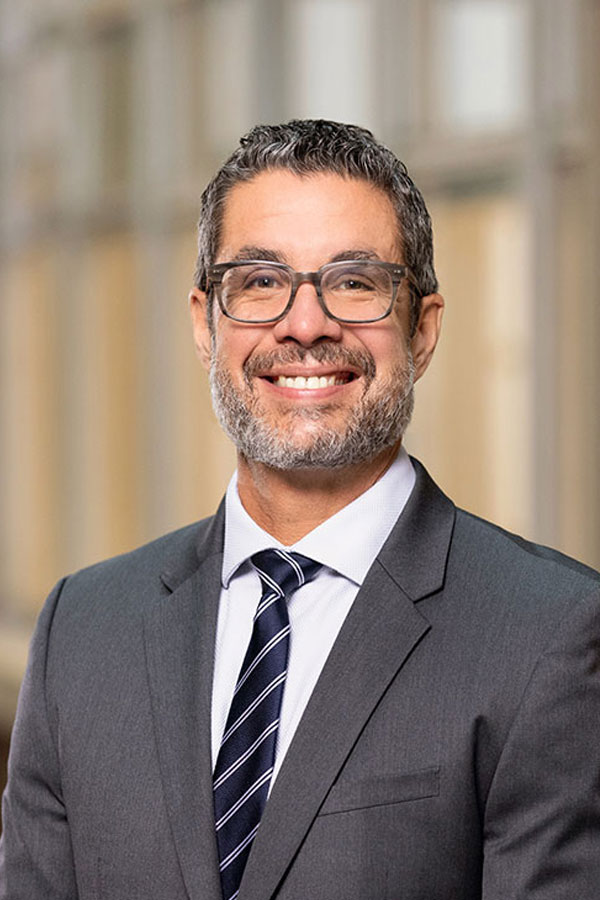
Dear Falk College Family,
Happy Syracuse University Giving Day! March 27 is the day when Syracuse’s global community unites for 24 hours of impact, friendly competition, and plenty of Orange pride!
Here in Falk College, we’re promoting giving that provides Falk students with transformative learning experiences from the classroom to the community and around the globe.
You have several giving options. Visit our campaign page to give directly to the Falk College Dean’s Fund, or visit our giving page if you’d like to give to a different fund that will support students in a specific program. For our friends in the human dynamics’ programs, please know that gifts to your programs will follow you to your new homes in Arts and Sciences, the Maxwell School, and the School of Education.
Please consider making a gift today to help our students reach their full potential!
Sincerely,
Jeremy S. Jordan, PhD
Dean and Professor
Falk College
‘A Celebration of You’
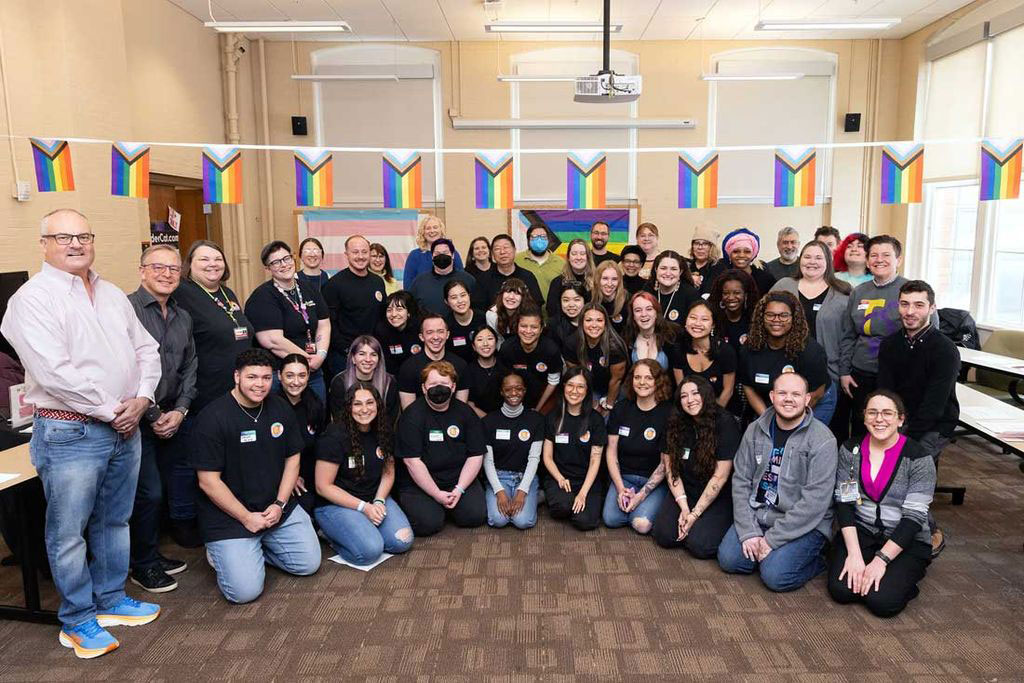
The annual Trans Support Day hosted by Syracuse University’s Marriage and Family Therapy (MFT) Trans Team is always an important event for members of the local trans community.
But this year it is perhaps more important than ever as the trans community faces unprecedented societal and legislative discrimination throughout the United States.
Trans Support Day 2025 will be held from 12 to 4 p.m. April 5 at Peck Hall, 601 E. Genesee St., Syracuse, just north of the Syracuse University campus. The event is free and open to the public.
“Trans and nonbinary folks of Central New York, please join us for Trans Support Day,” says Department of Marriage and Family Therapy Associate Professor Deb Coolhart, Ph.D., LMFT, who founded the Trans Team in 2004. “We know this time is extremely difficult politically and that you are receiving plenty of messages that imply that you don’t matter.
“We want you to know that you are valid, valued, beautiful, and loved,” Coolhart says. “The event is a celebration of you, and a place to connect with each other and be supported by your protective allies.”
Attendees at this year’s Trans Support Day will have the opportunity to connect with 25 trans-affirming providers, including 12 local businesses and organizations that support–and advocate for–the trans community. Available resources include legal support, affirming medical care, hormone providers, affirming wellness providers, free clothing and makeup, makeup and hair tutorials, and support for teens.
The event will also include a live band, and the Trans Team has received an overwhelming amount of donations for a free clothing drive, which is regular feature of Trans Support Day. Last year’s event attracted more than 250 people despite a snowstorm, and organizer Tristan Martin says he’s expecting a larger crowd this year as the event continues to grow from its formative years with less than 50 attendees.
“Trans Support Day is a day filled with community and positivity,” says Martin, Ph.D., LMFT, CST, an assistant teaching professor.in the Department of Marriage and Family Therapy. “The MFT Trans Team works together planning logistics for the event all year long to ensure that we provide a day that trans people can feel connected and celebrated.
“This year, more than ever, we are recognizing the importance of Trans Support Day and the powerful impact we can have to show trans people they belong, and they are supported,” Martin adds. “This is a day for providers and businesses to also connect as a form of allyship in the Central New York community. In moments of opposition, as history has shown us, community connection and allyship are crucial pillars towards liberation.”
The Trans team is part of the Syracuse University Couple and Family Therapy Center in Peck Hall, and students on the team receive specialized training to provide gender-affirmative therapy for transgender people and their families and assist in the readiness process for medical gender transition. Read more about the Trans Team in this story from Syracuse University’s central marketing content team.
About MFT
The Department of Marriage and Family Therapy in the Falk College of Sport and Human Dynamics prepares students to work with marginalized populations, at-risk youth, and the LGBQ and transgender communities. In the Couple and Family Therapy Center, marriage and family therapy students gain supervised, hands-on clinical experience while providing free therapy services to families, couples, and individuals across Central New York. Visit the MFT webpage to learn more about academic programs, experiential learning, and career opportunities.
Page 1 of 16
